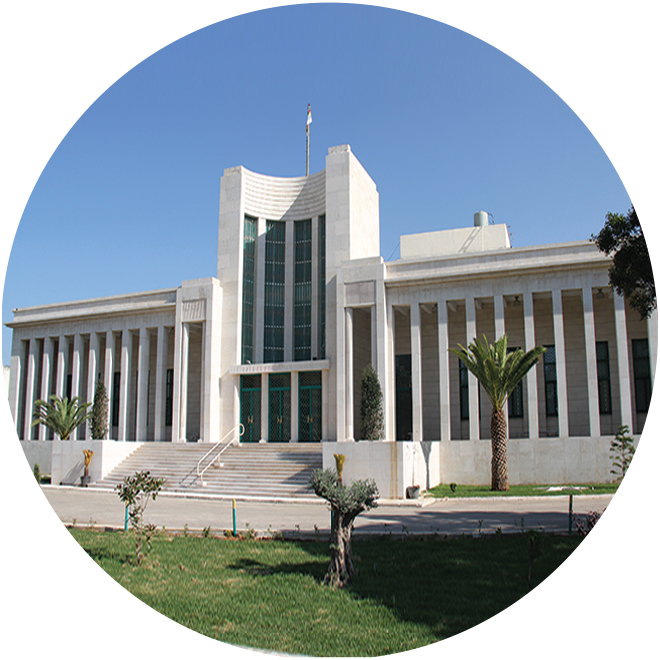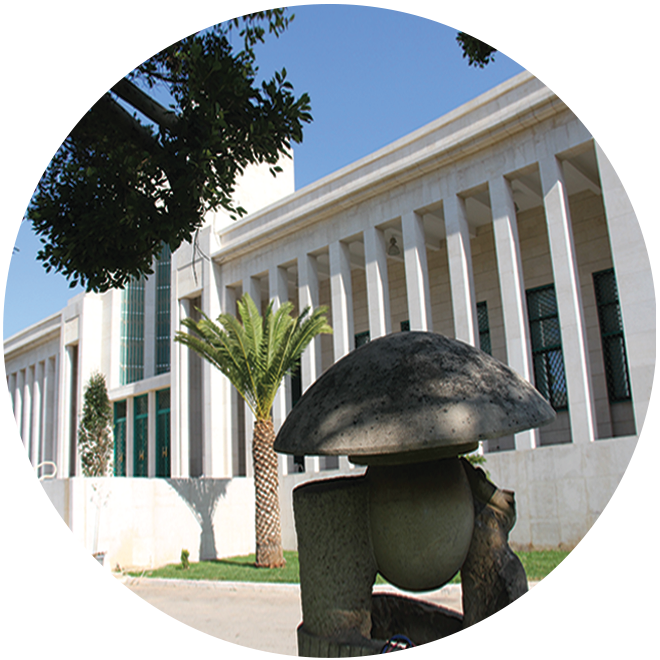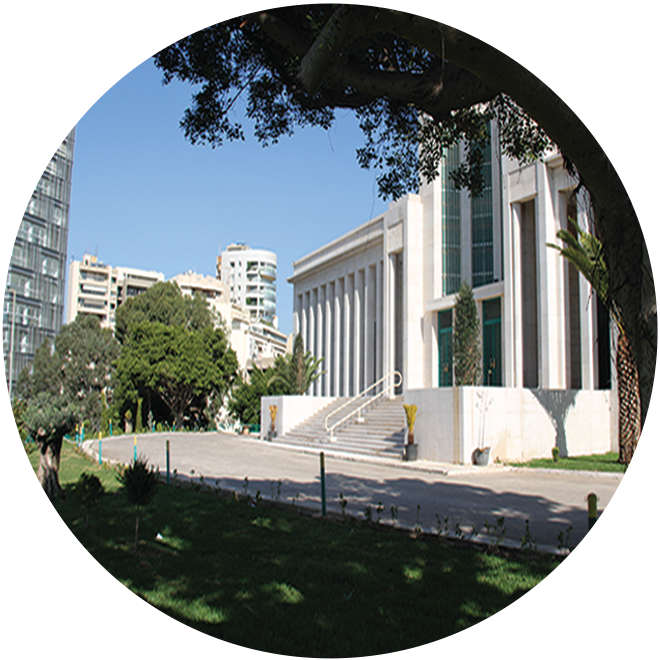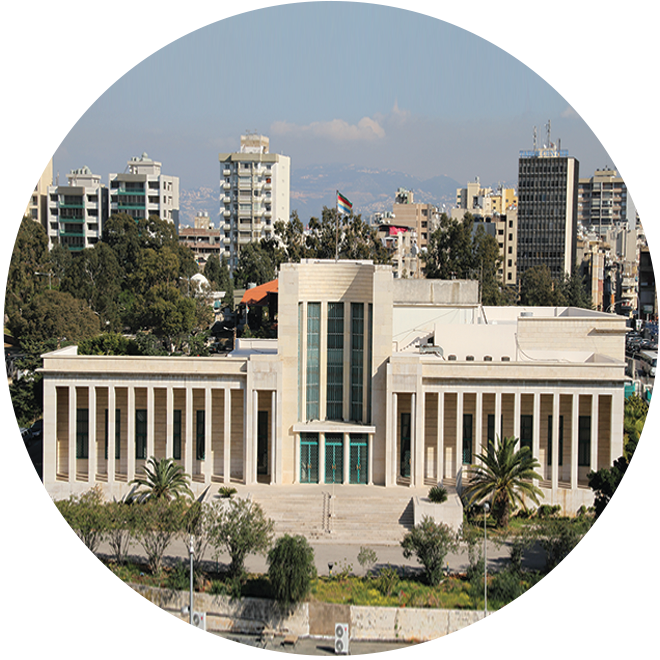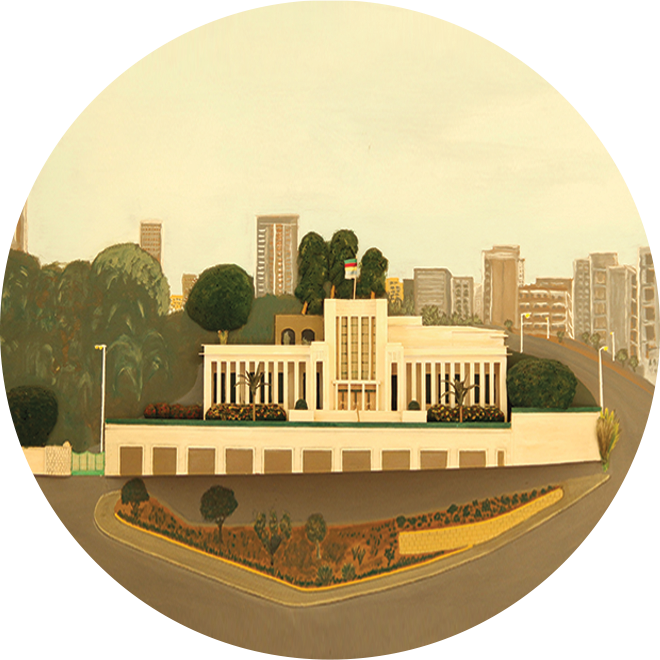2012-11-22
Overview about the sites history at the Druze Unitarian Community
Original significance:
It was stated in the Noble Koran: {And when We made the House a place of resort for mankind and a place of safety. And you the Maqam of Ibrahim as a place of prayer, and We commanded Ibrahim and Ismail that they should purify My House for those who are circumambulating it, or staying} (the Cow 125). Whether it was meant by the word “Maqam” the stone where were left his footprints or the whole house as explained by some analysts, the significance resides in indicating a sacred place to be referred to by people and to which they resort responding to the appeal, as determined visitors, turning to His Almighty in repentance and getting closer to Him through their obedient, blessed and charitable activities. In this concern, we emphasize the significance of the religious site in general.
What proves most the correlation between the concept of the “site” through the high religious values and their spiritual meaning, is the fact that a big part of it does not include the “eyes” relic that God has kept under His mercy, but the palace was established in many cases for the presence of footprints or the occurrence of a witnessed occasion in history, or any similar event, therefore, “the site” was a perpetuation for significance.
Significance Ramifications:
The Islamic civilization has witnessed, with its spiritual aspect, especially in the first four centuries of immigration, wide horizons that could be called “the spiritual universe of the text”. The correlation of the religious scholarship to the hard work, the attitude and the human sentimental realization – which means going deeply into the obedience requirements without being limited to the imposed obligations – until the apparition of the worshippers’ houses based on their sincere intentions, firm attitudes and continuous rise in the fields of knowledge and realizations as well as the compatibility of their words with their acts. Those are trustworthy, the ones we trust in their moves and behaviors, their words and thoughts, their apparent and inner ways, many of which are clearly visible. The most trustworthy people are the ones with perception and good intentions. If the obligation of the religious leaders consisted in enjoying the ethics stemming from the “the devotion of souls, the politeness of feelings, the purity of secrets, the impartiality of obedience and the hurry to goodness”, then the “trustworthy” enjoy the deepest realization of the hearts purity, the secrets respect, the faithfulness to promises, time preservation, carelessness to incidents and urgencies and good ethics in request positions”.
These have acceded, with their powerful soul, sincerity and guidance, to a high position that is, thanks to its spiritual kindness, far away from all that may corrupt the social situation to most of the people, regarding the living and daily endeavors that prevent many people from seeking the mentioned spiritual rise. It does not sound weird that the heart surrounded by the light of faith in those people who carried goodness since they were , by the Grace and Merit of God, the good example for the anchoring of the highest values concepts as well as the noble ethical examples and the beauty and rise of virtue beyond every beauty. Therefore, they constitute the right lead for society, especially when money and authority invade people’s minds and thoughts.
This took place during the old age with the sincere prophets, worshippers and servants of God who enriched the land by their presence and pure testimony. This happens with the lower classes of the old virtuous people adopting the right path and the straight approach in the light of the Islamic Law regulations and the Noble Koran teachings, far away from the corruptions of opinion and abiding by the Messenger’s laws – God’s prayers be upon him.
“Sites” of the Unitarians:
“Sites” are built for spiritual goals in the noble purpose and for social goals intended in their frame as well, in order to express the need of society to be related to the values, virtues and noble ethics that consolidate its bases from one generation to another.
A “site” are also called a “shrine” since people aim at visiting it to be blessed and to seek implication, supplication and prayer by showing their attachment to the noble virtues and their spiritual correlation to the goodness and rightness, as well as their supplication in this blessed space, to God His Almighty, asking for apology and penitence and resorting to the inspiration of His forgiveness and grace to them with mercy and success. Believers also visit it in order to celebrate a commemoration or read the evident verses of God.
Every “site” preserves its own story and history related whether to the stories of some Prophets, or to the life of one of the virtuous and prominent trustworthy or for the secretion of its soil for the remains of one of the righteous persons known for their firmness in the rules of orders, prohibitions and virtue in his life.
Among the old sites in Lebanon for example not being limited to “the site of the Prophet Ayoub” (Peace be upon him) on the surface of a high mountain overlooking the village of Niha/ Shouf, reminding us of the virtue of patience, and the grace of satisfaction and obedience. The site of “Mrs. Chawana” (Peace be upon her) in the Western Bekaa also recalls the worshippers of caves and caverns who have abandoned the pleasures and seductions of this world, and were determined to the journey of faith and Unitarianism.
One of the sites also returning to the Unitarians in Lebanon the site of “the Prince Sir Jamaleddine Abdallah El Tannoukhi” in Abey village, the active scholar, the great social reformer and the figure who has risen up to the national patrimony that some of the historians have considered as a shining mark at the period of the obscure ages in Lebanon’s history. This site occupies a deep-rooted position in the Unitarians’ hearts, and it is considered one of the beautiful antique constructions.
Ain Ata village includes in Wadi El Tim the site of the Honorable Sheikh (May he Rest in Peace), the religious figure considered, by its spiritual position, as a succession to the position of the Master Prince all through the last five centuries. The path of the virtuous Sheikh is considered as an example to be followed in modesty, asceticism, devotion and knowledge, knowing that the virtuous Sheikh has moved all through his life to other places such as “Kawkaba” and “Chouwaya”.
The aforementioned sites are considered as the eldest shrines for Unitarians in Lebanon. It is also kept in people’s memory in general and in personal memories in particular, for the matters of virtuous and religious people. This stimulates in people’s spirits the initiative to goodness in their souls on one side and in their social fields on the other hand, through the spiritual influence of the virtue’s examples, and thus feeling the need for the soul to get to know God his Almighty quite well and considering those virtuous people by their paths and approaches a means, to be aware of the great facts related to religion and faith. This is also achieved through the offering of services and donations, reviving the initiative spirit for devotion and generosity as well as good acts in society. In fact, at this period surrounded by the tendency to money and selfishness, these places, by their lovely significances and symbols, seem to be like green wide spaces mellowed for every noble humanitarian significance.
In conclusion, there is a concept that is anchored in the Unitarian teaching, stating that the light of guidance does not leave the world at a wink, and if that continuous supply did not exist, moral would have faded and vanished and wisdom would have been paralyzed. God forbid from this a large rise.
Similarly to the spiritual grace, a human does not get to it unless by ascending to the stiles of perfection flooded by God to His servants according to the epistolary and historical chronology from one period to another, as well as the laws inspired as luminous circles attached in the blessed inspiration chain. If it breaks, the necklace of the regular chain falls apart.
It was said: {Verily, we have sent the revelation to you as we sent the revelation to Nuh and the Prophets after him; We sent the revelation to Ibrahim, Ismail, Ishaq, Yaqub and Al-Asbat, Isa, Ayyub, Yunus, Harun, and Sulaiman, and to Dawud we gave the Zabur}.
In Lebanon, this unique mixture has amazed the World and offered an experience that might not be repeated through the interaction of the minaret with the Church’s dome, added to the ability of selecting the feasts traditions for many religions in one spot. This is the grace we have to preserve and be grateful for its permanence, so that God stays in our heart, the nation in our conscience, and the man in our conduct, our prayers and yours, wishing guidance to anyone who has lost the path.
On November 22, 2012
Conference Title: “the historical, antique and religious sites between the State’s responsibility and the Waqfs’ obligation”.
Speech Title: “Social and Religious History of the religious sites at the Druze Unitarian Community and their importance besides the other positions.









